8 Arguments Horror Fans Will Never Stop Having
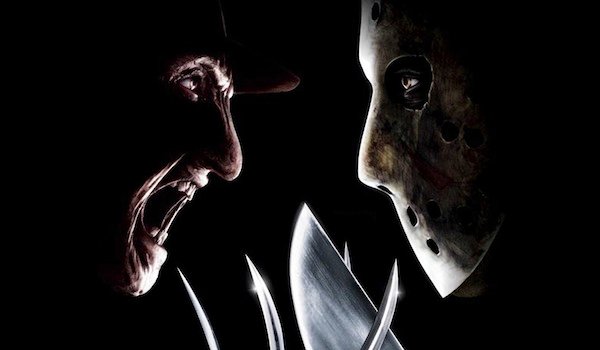
Horror fans are well known for being an opinionated bunch. Whether it be a broad question, like which movie is the scariest, or a more specific query, like who would win, Jason Voorhees or Freddy Krueger, genre aficionados love nothing more than arguing about the relative merits of their favorite film, slasher, subgenre, or various bits of minutia that makes people on the outside scratch their head. Things have a tendency to get rather heated, and many of us will cling to our opinions to our dying breaths.
With Halloween on the way, it’s the time of year when the spookier side of cinema takes center stage, whether you’re watching Crimson Peak in the theater (which most of you didn’t do) or marathoning low-budget schlock-fests with friends and a few beers from the comfort of your couch. What better time to run through some of the meanest, most vicious disagreements horror fans get into on a regular basis. Friendships have ended, blows have been exchanged, and there has been little to no resolution to most of these arguments, but this still sounds like a good time to us. Let us know where you stand on each issue below.
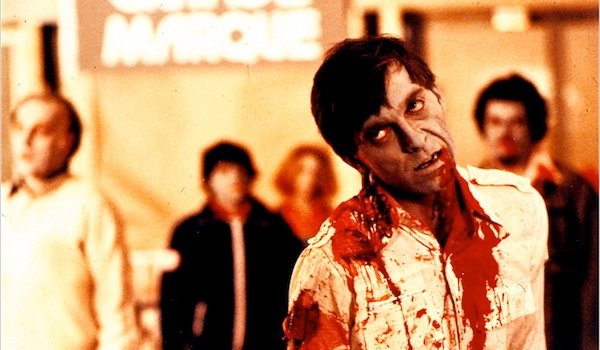
Which Is Scarier, Slow Zombies Or Fast Zombies?
With movies like 28 Days Later and Zack Snyder’s Dawn of the Dead remake, among others, zombies have in recent years largely transformed from shambling rotting corpses to speedy, more action-oriented antagonists. In a one-on-one situation, an undead aggressor that can chase down a hero is, according to some, more frightening than a slow, clumsy, brain-dead member of the walking dead. In the new millennium, this is an idea that has caught on, especially as it jibes with our increasing demand for continual action. And at its core, this argument truly boils down to action versus tension.
The counter to that is that zombies are scary precisely because they’re not fast. Making them fast essentially makes them just like other movie monsters and takes away the thing that sets them apart. They’re more of a looming, ominous threat. One slow zombie on its own isn’t particularly frightening, but five, ten, a swarm? They’re more of a force of nature, more a glacier than a lightning strike. They’re inevitable: you get tired, you have to rest, you’ll run out of bullets, they won’t, they’ll never stop, they’ll keep coming until they chow down on your sweet, sweet brain. This backdrop of constant tension is a perfect canvas for movies to explore the human side of their stories. Slow zombie movies, at least the good ones, are rarely about the creatures themselves, but how the survivors react to them and the base, ugly (and occasionally heroic) side of humanity that they bring out.
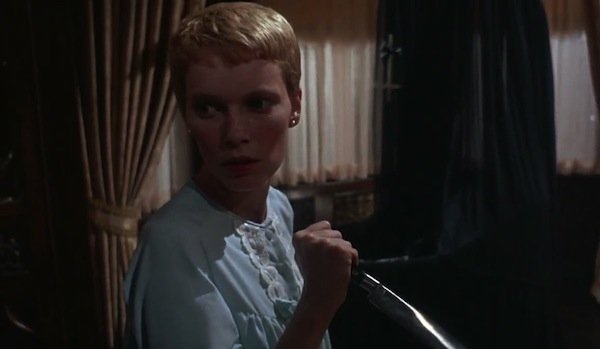
Tension Vs. Shock
Similar to the zombie argument, this one boils down to the suspense compared to action. Some argue that the best, most effective entries into the horror genre are those that rely more on cranking up the spooky atmosphere, ominous mood, and the tension. Think of movies like Alfred Hitchcock’s Psycho and Roman Polanski’s Rosemary’s Baby, movies that are taut and terrifying, but that have almost no blood or gore.
Your Daily Blend of Entertainment News
On the other side are those who prefer buckets of blood raining down from the sky, vicious bouts of graphic violence, and sudden scares, like monsters popping around corners and essentially saying, "Boo." There is, of course, room for both approaches in the genre, for a synthesis of the two ideas that are not mutually exclusive. In fact, perhaps the most affecting horror efforts combine them, using one to enhance and elevate the other. Look at Ridley Scott’s Alien, which has blood and guts and monsters, but is also one of the most tense movies ever made.
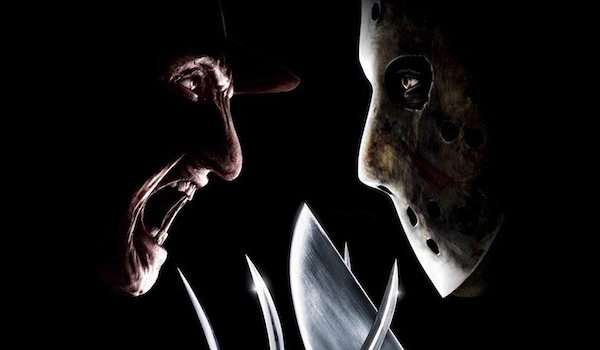
Freddy Vs. Jason
This one may be the granddaddy of them all. Sure, they faced off on the big screen in 2003, but one thing horror fans will never tire of debating is who would win, Jason Voorhees, the hockey mask-wearing, machete-wielding villain of the Friday the 13th franchise, or Freddy Krueger, Wes Craven’s razor-fingered, nightmare-haunting antagonist from the Nightmare on Elm Street movies. You can also throw Halloween’s Michael Myers into the "who’s the greatest slasher" conversation, but it almost always boils down to these two terrifying icons.
On one hand, Freddy is a charred, wise-cracking villain who haunts your unconscious mind, turning your slumber into a hellish, surreal nightmare landscape where, should you die in your mind, you die in real life. On the other, Jason is grounded in the real world, vengeance brought to life, an unstoppable killing machine, wordlessly, relentlessly stalking his victims. They represent two very different, yet equally chilling versions of terror, and as they each represent ends of the slasher spectrum, who you think is more frightening, or who would win in a fight, boils down to individual taste, which means people will never stop arguing about this, and we wouldn’t have it any other way.
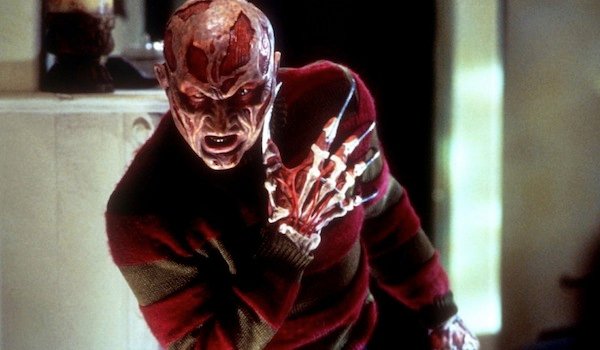
Wes Craven Or John Carpenter?
This past summer, horror lost a true icon in director Wes Craven. With a long, varied career, he had a huge influence across horror for decades. From his early days of exploitation fare like The Last House on the Left and The Hills Have Eyes, he remained relevant and important through the 80s slasher craze with The Nightmare on Elm Street, and even helped kick off the meta, self-referential horror wave with the Scream movies. Often imitated and never equaled, Craven was a true horror innovator and a genre icon.
Not many genre filmmakers can stand shoulder to shoulder with Craven, but one who may be able to make that claim is John Carpenter. Though his more recent output has largely failed to find the same acclaim as his earlier works, he is responsible for numerous influential horror films that have woven their way into popular culture. His Halloween franchise is one of the high points of the slasher subgenre, and the likes of They Live!, The Thing, Assault on Precinct 13, and more, cross genre boundaries, combining horror, sci-fi, home invasion, and other traits into stylish, unique films that continue to be vital pieces of the horror tapestry.
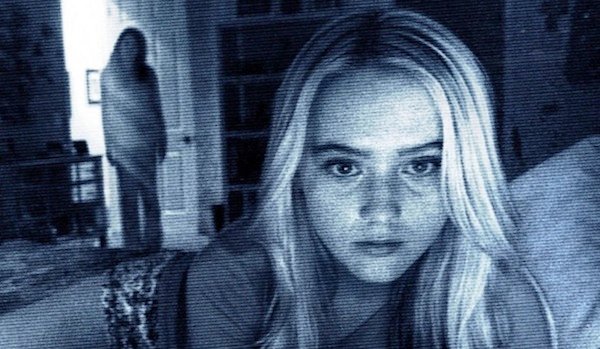
Is Found Footage Still Relevant?
Though the technique has been around for decades — as far as horror goes, it dates back to at least 1980 and Ruggero Deodato’s Cannibal Holocaust — it wasn’t until 1999 when The Blair Witch Project that found footage really became a craze. Allowing filmmakers to work on the cheap and allowing a certain flexibility, at its best found footage horror films use this pseudo-documentary approach to place the audience right in the midst of the action. It can provide a visceral, immediate connection that elevates the audience’s level of involvement and investment. It has precursors in literature, and is a kind of modern iteration of the epistolary novel, which has a long history with horror, including the likes of Frankenstein, Dracula, or The Call of Cthulhu.
But when a movie like Blair Witch is successful, it inevitably spawns imitators, and holy shit did this one catch fire, and for every strong example, there are seemingly dozens of half-assed, poorly planned, shot-on-a-camcorder (now your smart phone) offerings that are little more than amateur actors running around in the dark screaming as the camera bounces around until you’re motion sick. There are still good examples being made, Bobcat Goldthwait’s Willow Creek is solid, but it’s degenerated to the point for many, when they hear "found footage," it’s a deal breaker.
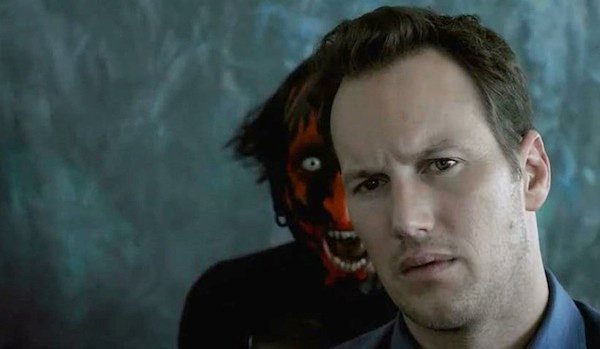
Is PG-13 The Best Or Worst Thing To Happen To Horror?
In the current cinematic landscape, just about every movie goes after a PG-13 rating, which opens your film up to a wider audience than a more restrictive rating. This includes horror. PG-13 makes the genre incredibly viable. Teenagers love going to horror movies and having the shit scared out of them, and they form a huge block of the movie-going population. This has allowed many horror films, especially those with modest budgets to become hugely profitable — just look at pretty much anything Blumhouse has ever made (though they’re not afraid to go R when the need arises). On one hand, this is great as it means more genre films get made…
…on the other hand, these movies, out of necessity, have to avoid sex and blood and violence, you know, all of the corner stones that the horror genre is traditionally built on. Some films can work around these restrictions and deliver effective movies, though many falter under the same pressure. Many purists and hardcore horror hounds feel like such a move hamstrings films, waters down the genre, and dilutes the genre as a whole.
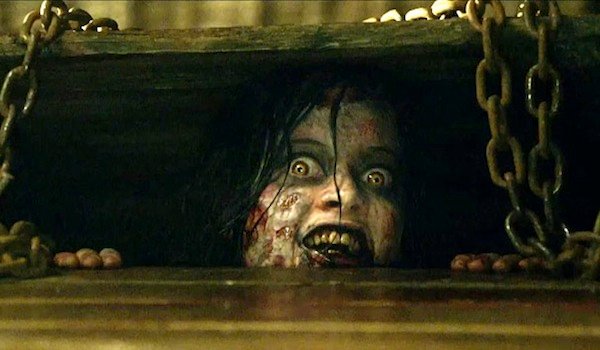
Do Remakes Ruin The Original?
At this stage, damn near every notable horror movie from the past, and even some less than notable titles, has been given the remake treatment. For some, these are obvious cash grabs that appear to be looking for nothing more than a hefty payday. They can be bland, shallow rehashes that just want to exploit an already existing fan base, and more often than not, they fail to bring anything new or imaginative or even vaguely interesting to the property. At worst, they’re insulting to the original film, not to mention those who love it as it is.
Then there are those that do actually manage to inject some new life into a title that has been around for years. Perhaps a franchise has become stale with endless, uninspired remakes. Then there are those films where, while they may have had interesting premises or an intriguing idea for a plot, the execution never lived up to the inherent potential. Even if a remake does wind up being a solid movie, either in the context of the franchise or on its own, there are still those that will never accept the new addition, and thus, as long as remakes keep happening, this is an argument that will never go away.
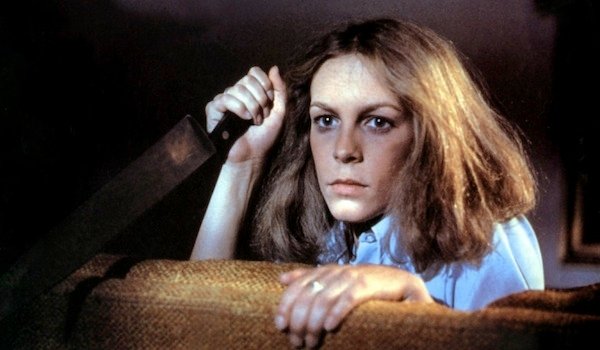
Who Is The Greatest Scream Queen?
Much of horror’s past is built on the premise of women in trouble, terrorized by one monster or demon or spirit or murderer or some other horrific figure. As these traumatized female protagonists have been staple of the genre since day one (they date back at least as far as Bram Stoker’s Dracula), there is, as you can imagine, a great deal of debate about which one of these damsels in distress qualifies as the greatest Scream Queen.
More often than not, the term, as popularly used, references more modern horror films, dating from, say, the 1970s, and covers a wide range of actress. It is often used to describe actresses who work almost exclusively in horror, like Linnea Quigley, Lindsey Felton, and more who have become cult figurers. But it also applies to those like Jamie Lee Curtis, who, despite a lengthy career across every genre, got her start in horror fare like Halloween, and has long been identified with the genre. Hell, even Kate Beckinsale won a "Best Scream Queen" award for one of her Underworld movies, so it really can be used in a great many situations. Given this wide application, it’s easy to imagine how fierce and varied the debate over who is truly the greatest can become.

